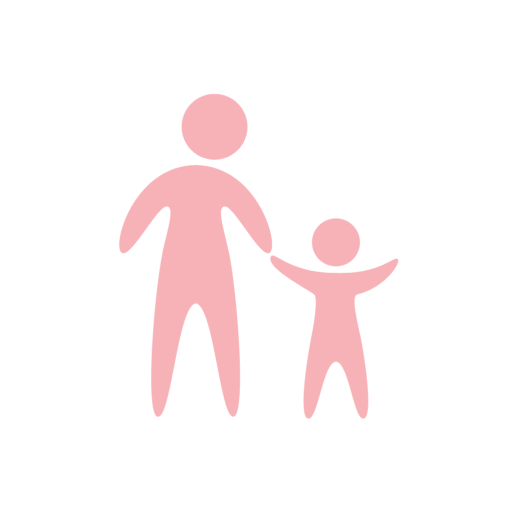Effective Communication: Listening and Talking With Your Child
Effective Communication: Listening and Talking With Your Child
Parenting is a journey filled with joy, challenges, and countless opportunities for growth — both for the child and the parent. At the heart of every strong parent-child relationship lies Effective Communication. This is more than simply exchanging words; it is about understanding, empathy, and connection. Children who experience mindful, respectful dialogue with their caregivers develop emotional intelligence, confidence, and resilience, setting a foundation for lifelong healthy relationships.
The Importance of Listening
One of the most overlooked aspects of Effective Communication is listening. True listening goes beyond hearing words — it involves observing body language, tone, and emotions. Children communicate in many ways, not just verbally. By paying attention to these signals, parents can respond more empathetically and accurately.
Listening attentively signals to your child that their thoughts and feelings matter. It validates their experience and fosters trust. According to insights from BodyWellnessGroup, active listening in children helps reduce stress, improve self-esteem, and build strong emotional foundations.
Speaking With Intention
While listening is crucial, how we speak is equally important. Words carry immense power, especially for developing minds. Effective Communication requires speaking with intention — using language that is clear, kind, and age-appropriate. Avoiding sarcasm, harsh criticism, or vague instructions ensures that your child feels safe and understood.
Positive phrasing and encouragement are key. For instance, instead of saying, “Stop being messy,” try, “Let’s tidy up together.” This approach promotes cooperation and models problem-solving, rather than instilling guilt or frustration.
Understanding Emotional Cues
Children often express emotions in ways that differ from adults. A tantrum, withdrawal, or silence may all indicate underlying feelings. Recognizing and naming these emotions is a vital component of Effective Communication. By acknowledging emotions like anger, sadness, or anxiety, parents help children develop emotional literacy — the ability to identify, understand, and manage feelings effectively.
Techniques such as reflective listening can help: “I see that you’re frustrated because your toy broke. That’s understandable.” This simple statement validates the child’s experience and opens the door for dialogue, helping them feel heard and supported.
Creating a Safe Communication Environment
The physical and emotional environment plays a major role in how freely children express themselves. A calm, distraction-free space encourages openness and honesty. Limit screen time, reduce background noise, and ensure your body language is inviting — eye contact, relaxed posture, and gentle gestures all communicate attentiveness.
Additionally, modeling calm responses in challenging situations reinforces the principles of Effective Communication. Children learn by observing, so demonstrating patience, empathy, and thoughtful responses teaches them to do the same.
Setting Aside Dedicated Time
Consistency matters. Scheduling dedicated time for conversation — even 10–15 minutes a day — strengthens the parent-child bond. During this time, avoid interruptions, listen actively, and engage in meaningful dialogue. Ask open-ended questions that encourage reflection and sharing. Questions like, “What was the best part of your day?” or “How did that make you feel?” invite deeper discussion and connection.
Resources like StudySkillUp highlight that structured daily interactions improve a child’s confidence in expressing thoughts and emotions. These small, intentional moments cumulatively have a profound impact on communication skills and emotional health.
Balancing Guidance and Autonomy
Effective Communication is also about finding the right balance between guidance and allowing your child autonomy. Offer choices whenever possible, discuss decisions, and explain reasoning in age-appropriate terms. This approach teaches responsibility, problem-solving, and critical thinking.
Encouraging autonomy fosters confidence and allows children to develop their own voice. When a child feels heard and empowered, they are more likely to communicate openly and honestly in the future.
Using Non-Verbal Communication
Words are only part of the story. Non-verbal cues such as facial expressions, gestures, and tone convey significant meaning. Being aware of your non-verbal communication ensures alignment with the words you speak. A gentle touch, a warm smile, or attentive posture reinforces the messages of support and understanding that words alone cannot fully convey.
Incorporating mindful non-verbal techniques, as discussed by FocusMindFlow, enhances the quality of parent-child interactions, strengthening both emotional and psychological bonds.
Conflict and Resolution
Conflict is inevitable in any relationship, including with children. Effective Communication is critical in resolving disagreements constructively. Teach children to express their feelings without aggression, and model calm problem-solving strategies. Avoid shouting or reacting impulsively; instead, pause, listen, and guide the conversation toward solutions.
Conflict can become a teaching moment. Discuss the situation afterward, reflecting on feelings and actions. This process not only resolves the immediate issue but also instills long-term communication skills and emotional regulation.
Integrating Technology Mindfully
In today’s digital age, technology can both help and hinder communication. While screens and devices often distract from conversation, they can also be used intentionally to support learning and connection. Scheduling device-free family time, engaging in interactive educational activities, or using digital storytelling tools fosters communication without overwhelming the child’s attention.
Guidelines from TripBeyondTravel suggest that mindful integration of technology can enhance family experiences while still prioritizing meaningful dialogue.
Encouraging Reflection and Gratitude
End-of-day reflection and gratitude exercises reinforce Effective Communication. Ask your child to share highlights of the day or something they are thankful for. This practice encourages self-expression, emotional awareness, and positive communication habits. Over time, it strengthens their ability to articulate thoughts, feelings, and experiences clearly and confidently.
Additionally, reflecting on daily interactions allows parents to evaluate and adjust their communication approaches, ensuring continuous improvement and deeper connection.
Long-Term Benefits
Children who experience consistent Effective Communication with their caregivers develop stronger social skills, better emotional regulation, and a secure sense of self. They are more likely to express themselves openly, resolve conflicts constructively, and form healthy relationships throughout life.
Parents also benefit — building trust, empathy, and a stronger bond with their child creates a more harmonious household and reduces stress. The principles of listening, empathy, and intentional speech foster a nurturing environment where both parent and child thrive.
For further insights on mindful parenting and practical strategies, explore resources like CoolParentingTips, which provides actionable guidance for creating a balanced, emotionally supportive home. Additional support and inspiration can be found at BodyWellnessGroup and StudySkillUp, which emphasize holistic approaches to emotional and cognitive development.
Conclusion
Effective Communication is the cornerstone of healthy parent-child relationships. By combining active listening, intentional speech, emotional awareness, and non-verbal sensitivity, parents create an environment where children feel valued, understood, and supported.
From small daily interactions to structured family conversations, every moment presents an opportunity to nurture connection, foster resilience, and teach lifelong communication skills. By making mindful dialogue a priority, parents ensure that their children not only hear words but truly understand and feel them — laying the foundation for emotional intelligence, confidence, and lasting trust.
Engaging in Effective Communication with your child is a continual process, a journey of learning and growth. Through consistent practice, reflection, and attention, families can cultivate meaningful bonds that endure, empowering children to navigate life with clarity, empathy, and self-assurance.
For additional guidance on parenting practices, emotional growth, and mindful strategies, resources such as FocusMindFlow and TripBeyondTravel provide valuable insights into creating holistic, nurturing routines that benefit both parent and child.
Learn Bond Bloom

Helping Kids Emotions Without Overreacting
Helping Kids Emotions Without Overreacting

Family Connection Time Ideas For Busy Parents
Family Connection Time Ideas For Busy Parents

Positive Discipline Tools That Teach Responsibility
Positive Discipline Tools That Teach Responsibility

Building Emotional Skills Kids Use For Life
Building Emotional Skills Kids Use For Life













